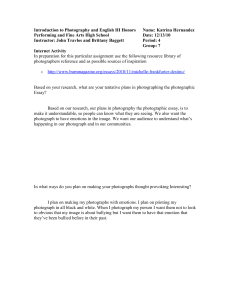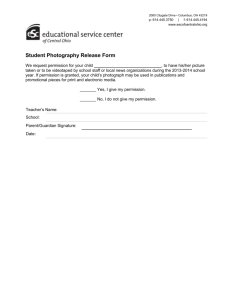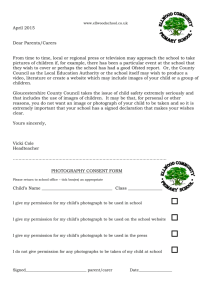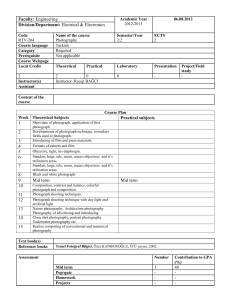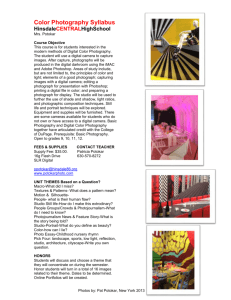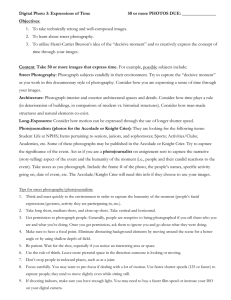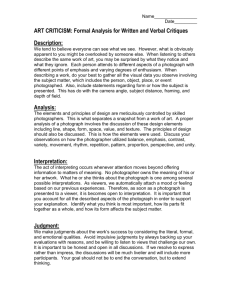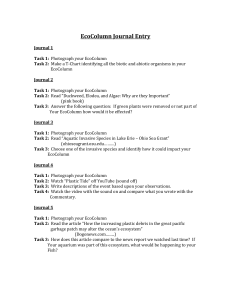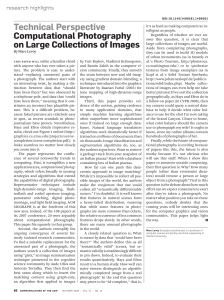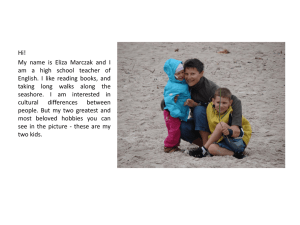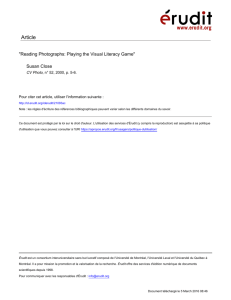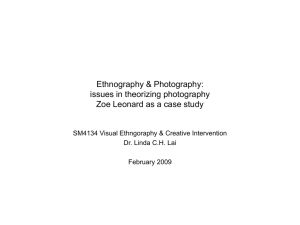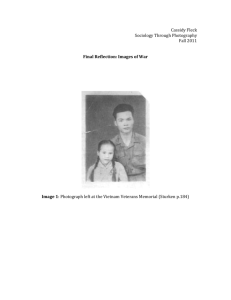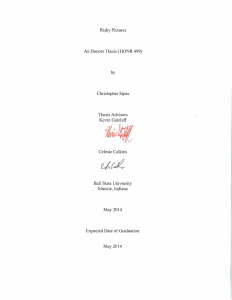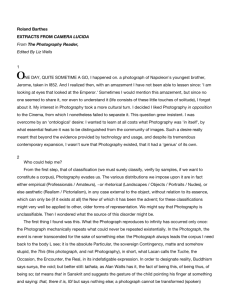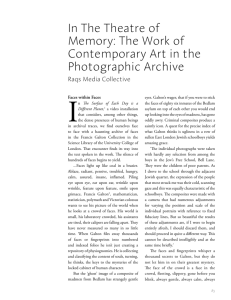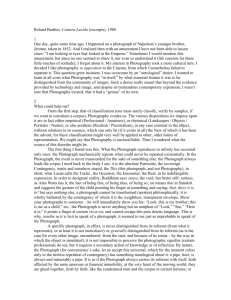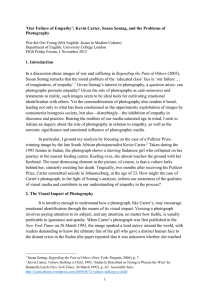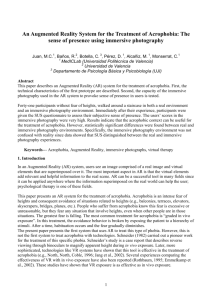Everybody Knows the Troubles I`ve Seen
advertisement
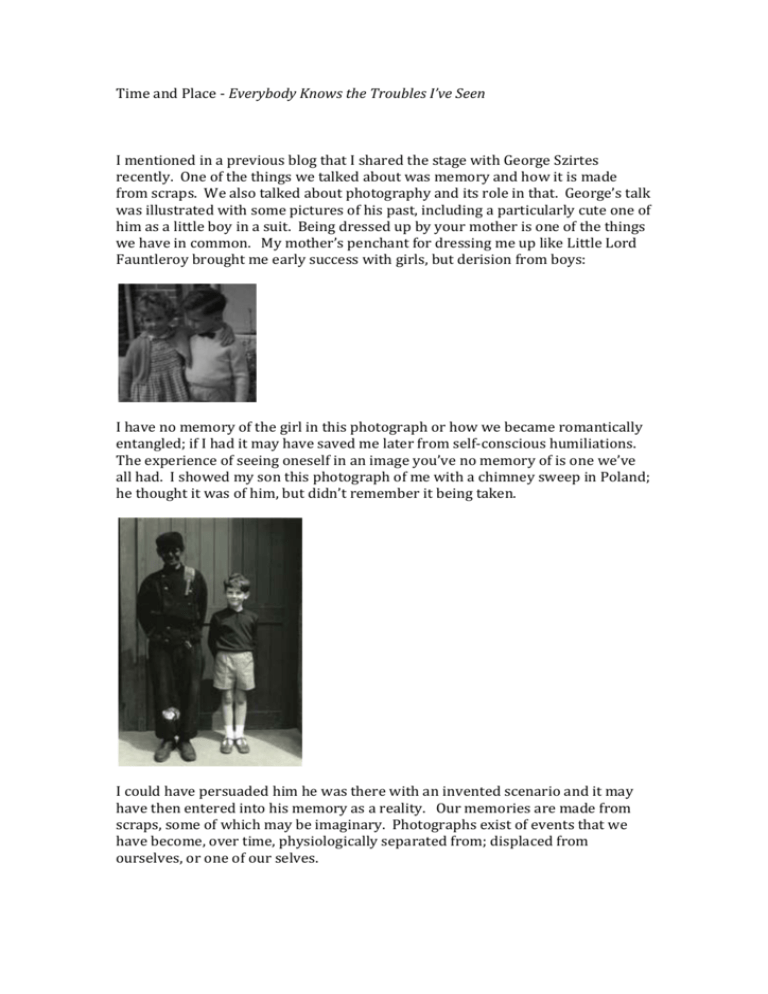
Time and Place - Everybody Knows the Troubles I’ve Seen I mentioned in a previous blog that I shared the stage with George Szirtes recently. One of the things we talked about was memory and how it is made from scraps. We also talked about photography and its role in that. George’s talk was illustrated with some pictures of his past, including a particularly cute one of him as a little boy in a suit. Being dressed up by your mother is one of the things we have in common. My mother’s penchant for dressing me up like Little Lord Fauntleroy brought me early success with girls, but derision from boys: I have no memory of the girl in this photograph or how we became romantically entangled; if I had it may have saved me later from self-conscious humiliations. The experience of seeing oneself in an image you’ve no memory of is one we’ve all had. I showed my son this photograph of me with a chimney sweep in Poland; he thought it was of him, but didn’t remember it being taken. I could have persuaded him he was there with an invented scenario and it may have then entered into his memory as a reality. Our memories are made from scraps, some of which may be imaginary. Photographs exist of events that we have become, over time, physiologically separated from; displaced from ourselves, or one of our selves. This imprecision about our own past can, counter-intuitively, be a great help when writing about ourselves, in that it allows the imagination in and by so doing, lets in the reader. It also gives us some critical and emotional distance, which is vital when we are making poems from difficult material. Amongst the many wise things crammed into its two pages Michael Hofmann’s essay ‘I happen to believe’ in Strong Words (Bloodaxe) has this to say – In his Adgia, Wallace Stevens makes the crucial point that a poem is not about an event, it is an event. A “confessional poem” is a contradiction in terms: the real action has, by definition, already taken place elsewhere. The reader, quite properly, responds to it exactly as you would a piece of gossip: ‘Lovely for you!’ or ‘Oh, you poor thing!’…. With that warning, and others, fixed in my head the whole time, it’s a wonder I was able to write anything at all when I went on my ‘confessional journey’ about the death of my mother at the hands of my father when I was nine years old. As disclosures go, this gains people’s attention and sympathy (or pity Oh, you poor thing!), but that is all. In his The Government of the Tongue Seamus Heaney talks of the poet's need to get beyond ego in order to become the voice of more than autobiography. If we can do this then, through the personal, we can reach the universal and everyone’s a winner (I typed this as winer and was prompted with whiner by the programme, which must mean something). When woken on the night of my mother’s death, nothing would be the same again. I would not return to the same school, nor ever see those friends again. The next day we were driven away from that place to another, looking out of the back window of my uncle’s car watching my old self disappear. I was then at the mercy of various agents, some kind and some not, until I took responsibility for myself and left school at 15 to join the Army. I’ve selected some of the poems that focus on place and I hope illustrate how photography and its technical and psychological processes helped with the complexities of the events. Roland Barthes has much to say on our relationship with photography in his beautiful Camera Lucinda; how all photographs will inevitably become memento mori. He talks about exploring a photograph not as a question, but a wound and of the ‘punctum’ - that thing that pierces us and connects us emotionally to a photograph. Vanishing Point The rear window flickers into life as we pull away, the uncertain image of a boy on a bicycle appears, behind him a painted backdrop of the avenue, its sycamore trees and pebble-dashed houses: Piggotts’, Mitchells’, Mrs Donnelly’s with all its confiscated footballs, her poodle yapping at the fence. Children’s games are caught in mid-air, at the height of their action. Uncle Philip turns onto the busy road. The boy pedals like mad to stay with us, but we stretch away and leave him stranded, disappearing. Then there is just white light and the loose flapping sound of a film end escaping its gate. The boy who came down the helter-skelter bend after bend has gone. Keep this last film dark and tightly rolled, hold its tongue between your teeth; its boiled down bones and animal hides, its twenty layers of celluloid. The story has its roots in the Second World War. My father was 14 years old at the start of the war and lived in Silesia, then a part of Germany and where Auschwitz is, but now in Poland; like much of Eastern Europe it has changed hands many times. He was in the Hitler youth and then the German Army and then, after capture in Italy, the Polish Free Army. He came here as part of the wave of Polish immigrants after the war. He understandably kept his German background a secret. In the early sixties he took me to visit Poland with him for the first time since the war. Then a worker started at the factory and his secret unravelled. Mental illness began to take hold and he became increasingly paranoid. One of my memories of Bytom was of walking beside giant slag heaps of coal – Silesia is heavily industrialised. These do not feature in the holiday snaps, but thanks to the wonders of Google Image I was able to find this which confirmed my memory, and more, for this poem Coal Caverns of fire growl deep underground crack open the contaminated surface so the murmur of voices can escape. The bones of dukes and peasants, Bohemians, Prussians, Mongol raiders and Moravians are pressed tight into a fault line thin as a flag. The flag is the colour of blood cells. Behind the buckling crosses of window frames old men are dismantling clocks on kitchen tables, looking for providence amongst cogs and spiders. And the black hills will join the sky and rain, will pour down and bury this place. During the war my mother had been evacuated from Liverpool to Shrewsbury, where she stayed with a nice posh family. This gave her a taste for the finer things and we ended up living in Shrewsbury, moving there when I was two. My father was an avid amateur photographer and my first experience of the process of photography was in the fume-filled under-stairs cupboard, with him making photographs of family outings. These outings where to pleasant places, where we would pose in our Sunday best. Glove My mother and I pose in Sunday best in front of a cottage with roses around the door. She dreams it is our house, where white gloves will not be smudged or snagged on a thorn and be left with a pin-prick of blood. I could print this photograph so dark, there would only be her hand on my shoulder. Before I embarked on this project, outside of my immediate family, only three or four close friends knew of the story and now look at me blogging it out there. You’ve read this far, so know more about me (and there’ll be much more to follow) than I might be comfortable with - so why do it? Well not for blame, sympathy or therapy – I am a ridiculously happy person – ‘in a good place.’ Understanding is the thing and somehow, poetry can give you that, by giving something a shape that you can hold. It remembers my mother, which is important to me, but along the way it brought me more of an understanding of my father, as I inevitably had to imagine parts of the story from his viewpoint. The sculptor Ron Muick talked in an interview with Craig Raine about how empathy grew with his father during the making process that he never had while he was alive and I certainly felt that too. Mueck’s hyper-real sculptures are typically larger than real life, Dead Dad is only three feet long, but still highly detailed showing: stubble, yellowing toenails and calloused feet. The Camera is inside a box, inside a box, inside a padlocked room inside a warehouse. I imagine it imagines itself forgotten, left for dead in a town I’m pretty sure it wouldn’t recognise; that maybe the town itself is forgotten, boarded up and wind-blown. Its thoughts are brittle and unresolved. One day I shall hold them with white gloves, carefully brush away the dust and look through their shadows and fingerprints.
